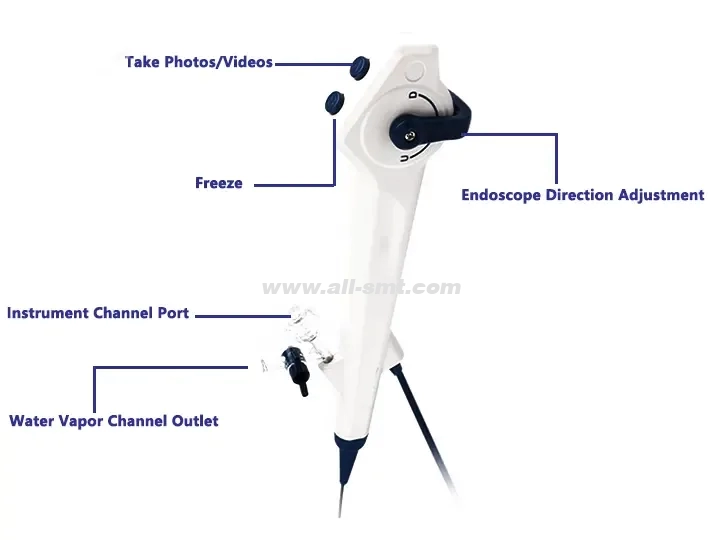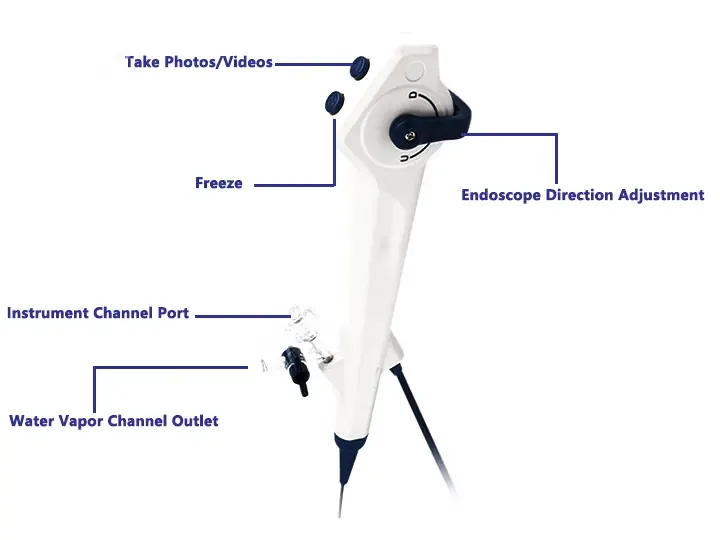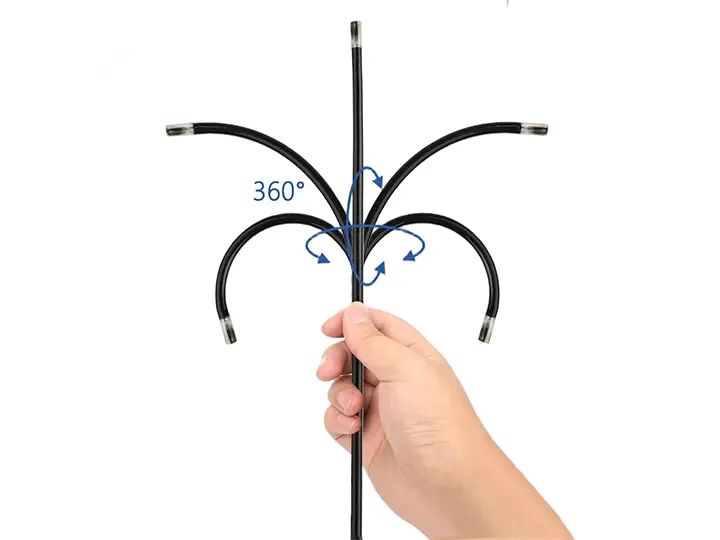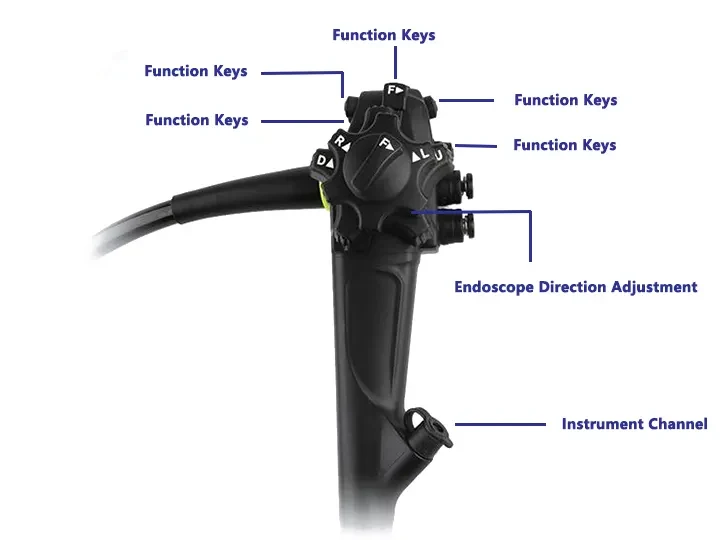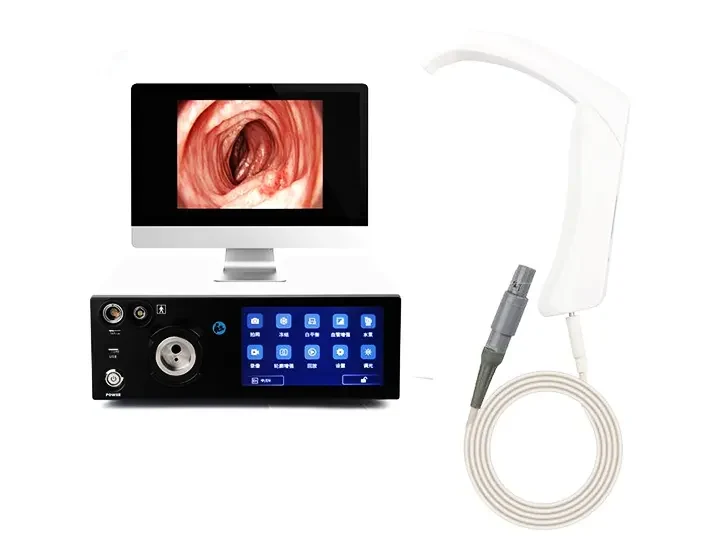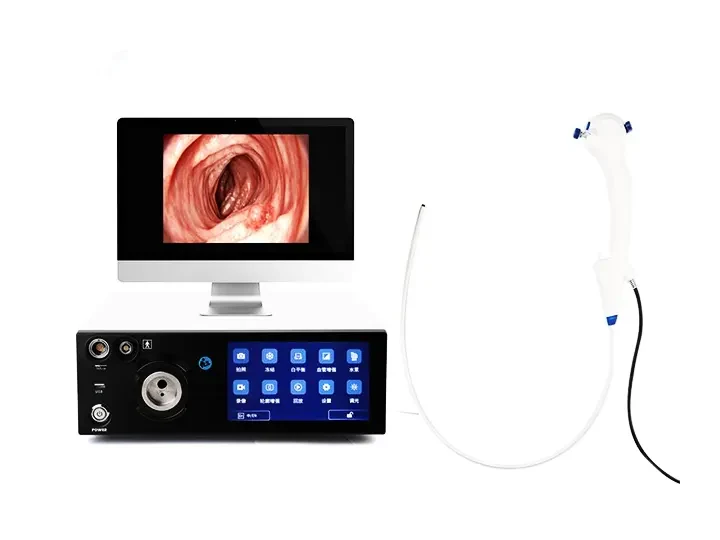Core advantages of disposable endoscopes
1. Zero risk of infection control
Completely eliminate cross infection: single patient single endoscope, no need to worry about sterilization residues (such as hepatitis B, HIV virus)
Avoid loopholes in the disinfection process: avoid biofilm residues caused by incomplete cleaning
Particularly suitable for: immunocompromised patients, infectious disease departments (such as tuberculosis examination)
2. Ready-to-use clinical efficiency
No pretreatment required: can be used after unpacking, saving 2-3 hours of disinfection time for traditional endoscopes
Emergency rescue advantage: can be immediately retrieved for use in emergencies (such as ICU airway management)
Turnover rate improvement: outpatient examination volume can be increased by more than 30%
3. Cost structure optimization
Eliminate hidden costs: save the cost of consumables such as enzyme washes, sterilization equipment, and water quality testing
Reduced labor costs: reduce the allocation of full-time staff in the disinfection supply center (CSSD)
Maintenance costs are zeroed: no lens repairs, fiber optic replacements, etc.
4. Quality consistency guarantee
Performance consistency: new optical performance every time it is used, no image attenuation caused by aging
Standardized experience: avoid differences in handling feel caused by mirror wear
Simplified compliance: no need for maintenance record traceability, in line with strict certification requirements such as JCI
5. Rapid technology iteration
Application of new materials: use medical-grade polymers to reduce the risk of allergies (such as latex-free design)
Integrated innovation: some products have integrated LED light sources (such as Ambu aScope 4)
Environmentally friendly improvements: biodegradable mirror materials are under development (such as PLA materials)
6. Adaptability to special scenarios
Field emergency: battlefield hospitals, disaster relief and other scenes without sterilization conditions
Primary care: community health centers that lack professional disinfection equipment
Teaching purposes: avoid students from damaging expensive reusable mirrors
7. Latest technology
Some products have achieved:
4K resolution (such as Boston Scientific LithoVue)
Dual-channel treatment function (such as disposable choledochoscope)
AI-assisted imaging (such as automatic pneumonia recognition algorithm)
Market representative products
Brand Product line Outstanding features
Ambu aScope 5 Broncho 1.2mm working channel + CO₂ perfusion
Boston Scientific LithoVue digital ureteroscope + 9Fr ultra-thin diameter
Domestic (Pusheng) disposable bronchoscope costs only 50% of imported products
Comparative advantages with traditional reusable endoscopes
Comparison dimensions Disposable endoscope Reusable endoscope
Single use cost ¥800-3000 ¥200-500 (including disinfection)
Preparation time <1 minute >2 hours
Infection risk 0% 0.01%-0.1%
Image stability Always as good as new Decay with the number of uses
Priority ranking of applicable scenarios
High-risk infection cases (MDRO patients)
Emergency/first aid scenarios (airway foreign body removal)
Primary medical institutions (no professional disinfection conditions)
Institutions with strict control of high-value consumables (avoid the risk of loss)
Development trend
Cost reduction: localization drives the price down to the 500-1000 yuan range
Function enhancement: Development towards therapeutic disposable endoscopes (supporting electroresection/laser)
Environmental protection solutions: recyclable component design (such as handle reuse)
Disposable endoscopes are reshaping clinical processes. Their core value lies in transforming infection control from a "probability problem" to a "deterministic problem", which is particularly suitable for the diversified medical needs under my country's hierarchical diagnosis and treatment system. With technological advances, their application scope will expand from the current bronchoscopes and cystoscopes to complex fields such as gastroenteroscopes.
